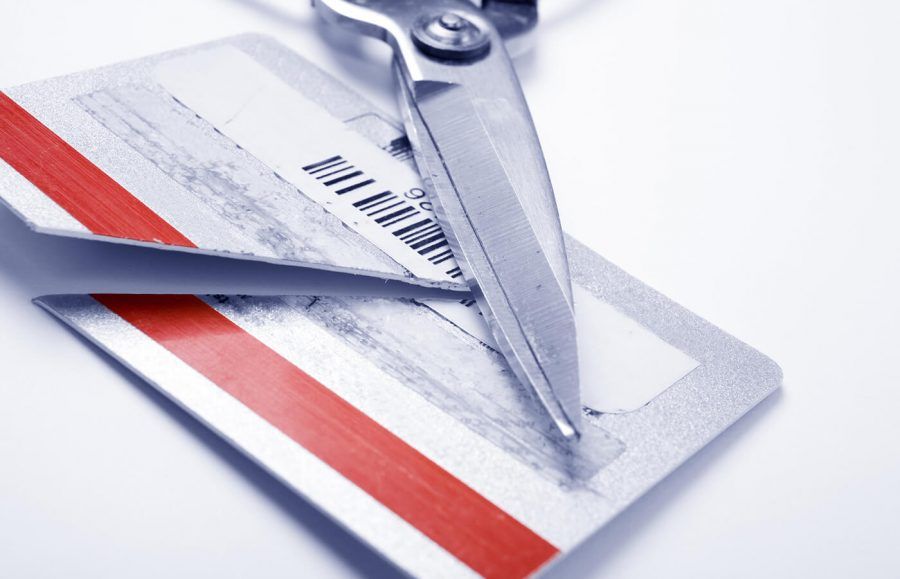At Experian, one of our priorities is consumer credit and finance education. This post may contain links and references to one or more of our partners, but we provide an objective view to help you make the best decisions. For more information, see our Editorial Policy.
In this article:
There's no worse feeling than going to pay for something only to find that your credit card account is no longer open. Though it may not happen often, credit card issuers can close your inactive accounts with no warning.
Having one of your accounts closed can lower your credit score and reduce the amount of credit you have available. Read on to learn why creditors close accounts, what impact it could have on your credit and how to prevent account closures in the future.
Why Do Creditors Close Unused Accounts?
There is no industry standard explaining why creditors close inactive accounts. Each card issuer has its own criteria, and very few issuers disclose their policy (check your card's terms and conditions to be sure). That said, each credit card account costs the issuer money to maintain, and inactive fee-free accounts don't generate revenue.
Credit card issuers are not required to inform you if they decide to close your account due to inactivity, so it's important to understand what can happen if one of your accounts closes unexpectedly—and why you might want to prevent this from happening.
How Will a Closed Credit Card Affect My Credit Score?
When one of your credit card accounts is closed, your credit score will be impacted in two ways. Here is an overview of what will happen when your credit report reflects a closed credit card account.
- Your total credit limit will decrease, and your utilization will likely increase. Though you may not ever use all of your total available credit, how much credit you use is important when calculating your credit utilization ratio. Your overall utilization ratio is calculated by dividing the total of all your revolving balances by the total of all your credit limits. That means if your total credit limit drops, your utilization (if you continue to carry the same balances) will go up.
Credit utilization is the second most important factor of your credit score, and it's recommended to keep your utilization rate below 30%. If one of your credit cards is closed and your utilization goes above the 30% mark, you'll want to adjust—either by increasing your total credit limits or by reducing your spending—to get that ratio back in check. - Your length of credit history could decrease. A longer credit history and higher average age of accounts help your credit scores. When you close a credit card account, these factors may decrease, though not always right away. How much they decrease will depend on how long you had the card and the scoring model used. Credit age accounts for 15% of your FICO® Score☉ , so changes could have an impact on your scores.
Though your credit scores are calculated based on a handful of factors, changes to your utilization and credit age could cause your scores to dip. The good thing about credit utilization, however, is that you can easily manipulate it by paying down your balances.
How to Prevent Your Account From Being Closed
In most cases, when an issuer decides to close your credit card account, it's because the account hasn't been used in some time. While there is no solid guideline that dictates how often you should use your card, plan to use it at least a few times a year.
To get ahead of any activity-related closure, consider using each of your cards for a small, recurring payment and pay it off each month. Utilizing your credit cards to pay regular monthly bills, such as a streaming service or cellphone bill, can help keep them active.
Keeping track of these occasional payments could be challenging if you have multiple cards that you don't use often. Here are a few tips to manage your accounts:
- Make sure you're enrolled in autopay. If you plan to use your cards for a recurring payment, you'll want to be sure you have autopay set up to cover at least your minimum payment so you're never late to pay. Your payment history is the most important aspect of your credit scores, and missing even one payment can cause your credit score to drop.
- Pay the full balance to avoid interest. Paying your balance in full every month will save you from paying interest charges. If you're only using your card occasionally to keep your account active, you don't want to end up paying interest just to do so.
- Use a spreadsheet to manage multiple cards. If you have more than one credit card and want to keep them all active, you'll want to use each one for at least one purchase every few months (preferably every month). Using a spreadsheet can help you manage this process and help you remember to pay all your bills on time.
How Can I Check to See if My Accounts Have Been Closed?
If you're unsure if any of your accounts have been closed, get a free copy of your credit report so you can see which accounts are listed as open. Also consider signing up for free credit monitoring so you get notifications each time something changes in your credit reports.

